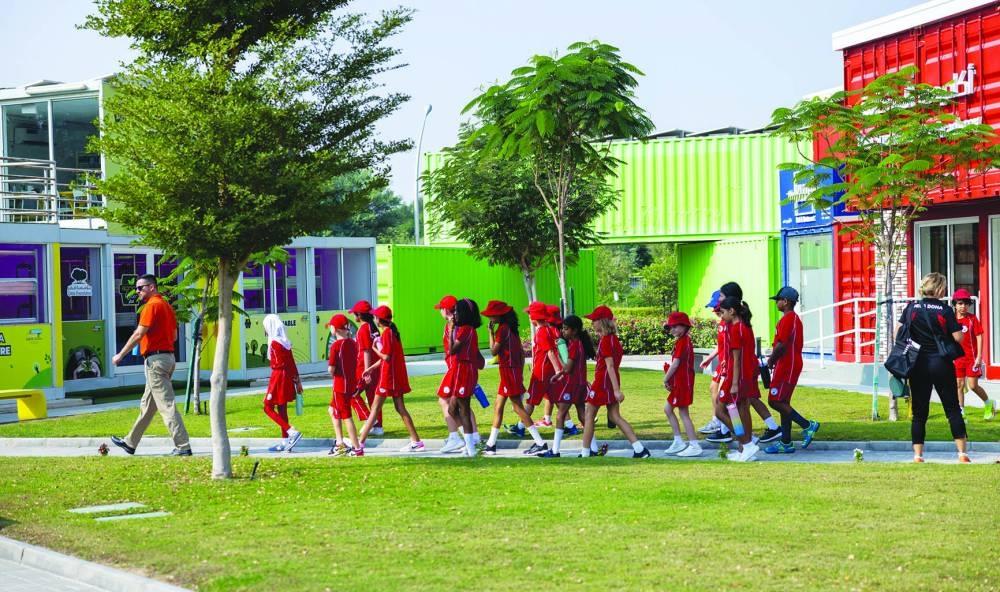
Qatar Foundation: Leading The Way In Building A Sustainable Future
blade-->
How does Qatar Foundation's approach to sustainability align with the broader objectives of Qatar National Vision 2030?
Dr Al Sulaiti: Qatar Foundation's sustainability approach is deeply aligned with the Qatar National Vision 2030, particularly its pillars of environmental development and human development. QF integrates sustainability across its operations, education, and community life, not as a separate goal, but as a way of living and working.
blade-->
Our initiatives focus on building environmental awareness, reducing carbon footprint, promoting research and innovation, and nurturing a culture of responsibility among the community. In this way, we contribute directly to the national goal of balancing economic growth with environmental preservation for future generations.
Could you highlight some of the key sustainability achievements within Education City that have had a measurable impact?
Dr Al Sulaiti: Education City serves as a living model of sustainable urban development. Some notable achievements include its green building standards, with many buildings across Education City being LEED-certified, demonstrating energy and water efficiency.
In addition, sustainable mobility has been enhanced through the introduction of the Education City Tram, which significantly reduces carbon emissions by providing a clean, electric transportation alternative. This system, the first battery-operated tram charged by pantographs, has already reduced gas emissions by 10% and air pollution by 20%. It serves more than 100,000 passengers a month and has surpassed four million journeys since launch.
Education City has also implemented recycling and waste reduction programs, including waste segregation, composting of organic material, and resource reuse, leading to a measurable decrease in landfill waste. Furthermore, water and energy optimization initiatives, such as smart irrigation systems and renewable energy projects, have reduced consumption across facilities.
Collectively, these efforts demonstrate tangible progress toward a greener campus and community. QF's sustainability commitment has even earned recognition as a 'Climate Conscious' organisation by South Pole, and its carbon-neutral initiatives set a regional benchmark.
blade-->
What role does innovation play in QF's efforts to create a more sustainable and environmentally conscious community?
Dr Al Sulaiti: Innovation is at the heart of QF's sustainability strategy. Through our research institutes, universities, and community programs, we drive innovative solutions to environmental challenges, from water and energy management to sustainable food systems.
For example, partnerships with the Qatar Environment and Energy Research Institute (QEERI) have enabled the piloting of renewable technologies and advanced environmental monitoring systems across Education City. This includes deploying multiple air-quality stations to track gas levels and develop mitigation measures that help reduce CO2 emissions, particularly in parking areas.
Similarly, community-driven initiatives such as urban farming projects, including QF's Park and Plant program, aim to densify and beautify Education City while engaging the community in greening efforts, demonstrating how creativity can translate into everyday sustainable practices.
Beyond Education City, QF's innovation hubs are achieving global impact. Projects such as the Solar Carbon Black Project, developed with Texas A&M University at Qatar and Fraunhofer IWS, are creating clean industrial processes that produce high-grade carbon without greenhouse gas emissions. The Distributed Solar Smart-Grid System, meanwhile, enables real-time monitoring and optimisation of solar energy generation across QF facilities, enhancing efficiency and resilience.
blade-->
How do initiatives like the micro farms contribute to fostering environmental awareness and community engagement?
Dr Al Sulaiti: The micro farms are a practical example of sustainability in action. They connect students, staff, and the wider community with nature and local food systems. Through hands-on participation, individuals learn about composting, water conservation, and sustainable food production.
These spaces foster environmental awareness, collaboration, and a sense of shared responsibility, inspiring behavioral change by showing that sustainability begins with small, everyday actions that collectively make a big difference.
Teaching students about planting and home composting in the micro farm greenhouse helps them develop practical skills that they can share with their families and friends. Moreover, the outdoor community garden, where families enjoy growing their own vegetables and donating a portion to families in need, nurtures social responsibility, empathy, and community collaboration.
In what ways is QF working to instill sustainability values among students, researchers, and residents within Education City?
Dr Al Sulaiti: QF integrates sustainability into the very fabric of learning and campus life. For students, environmental education is embedded into both curricula and extracurricular activities, nurturing future leaders who value responsible living.
For researchers, QF supports projects addressing local and global sustainability challenges, from energy and water management to biodiversity conservation. For residents, initiatives such as green living workshops, recycling campaigns, and community gardens engage families and residents in sustainable practices.

Legal Disclaimer:
MENAFN provides the
information “as is” without warranty of any kind. We do not accept
any responsibility or liability for the accuracy, content, images,
videos, licenses, completeness, legality, or reliability of the information
contained in this article. If you have any complaints or copyright
issues related to this article, kindly contact the provider above.


















Comments
No comment